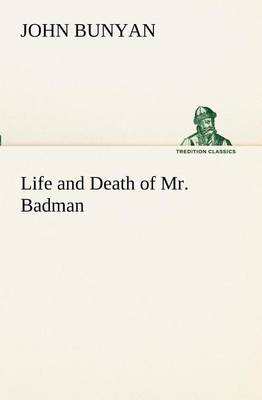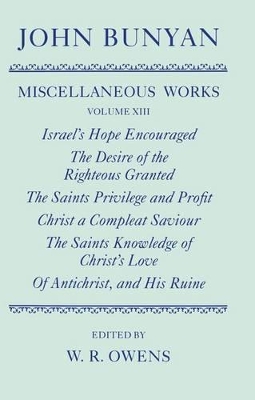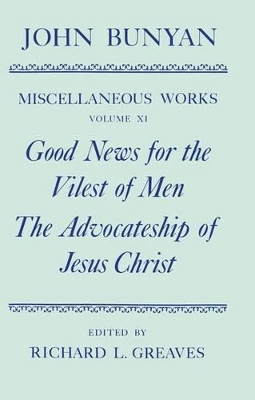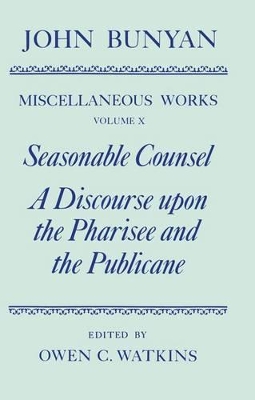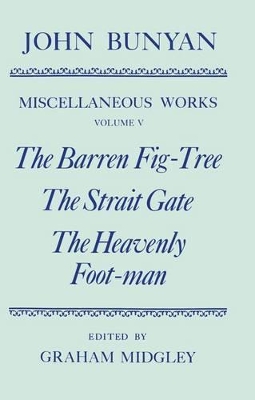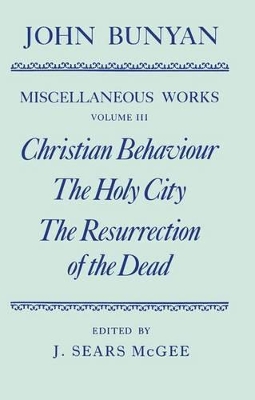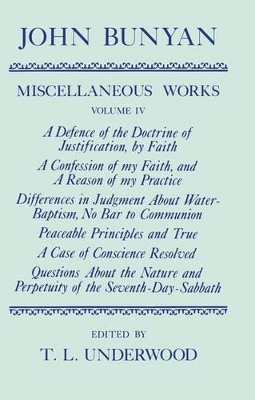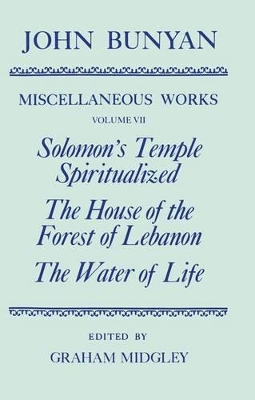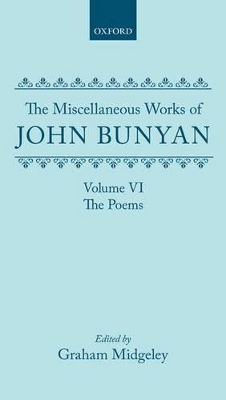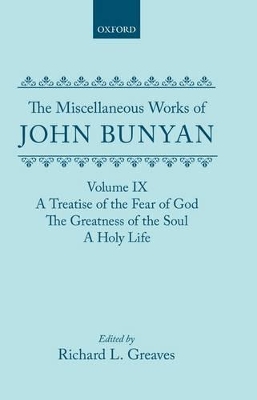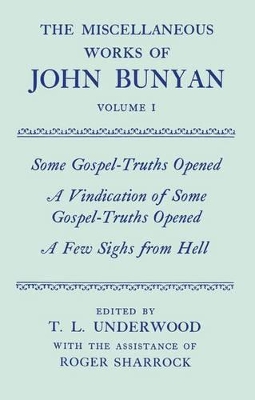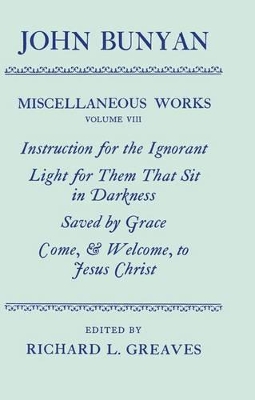Oxford English Texts
13 total works
apprenticeship until he becomes a prosperous shopkeeper, Badman gives free rein to greed, lust, and the exploitation of others, including his virtuous wife. Puritan moral abstraction is almost buried under realistic detail in a work which looks both back to the medieval homily and forward to the novel. It
is an indispensable work for the study of seventeenth-century Puritan society and its mythology; as with the same editors' The Holy War, it contains a full introduction and commentary.
strenuous affair, calling for constant vigilence, self-examination and courage. The theme of endurance under persecution is prominent, and in a late millenarian work, Of Antichrist, and His Ruine, Bunyan offers a sombre, but eloquent account of the approaching downfall of the great enemy of the ture church,
the Antichrist. Unlike many of his contemporaries, Bunyan is careful not to name dates, or interpret the apocalyptic texts too literally, but a striking feature of this work is his belief that kings would be God's chosen intruments in the destruction of Antichrist.
A Discourse upon the Pharisee and the Publicane is an exposition of the parable in Luke xviii. The work gives Bunyan's ultimate thoughts on justification by faith, which show a development from his earlier position. There is a shrewd analysis of the characters, with a lively and original discussion of body language.
The introduction to this volume relates Bunyan's arguments and experience to their context, including contemporary ideas on persecution and toleration and on the connection between faith and justification.
The Miscellaneous Works of John Bunyan: The Miscellaneous Works of John Bunyan
by John Bunyan
Bunyan directed the earliest of these works, A Defence of the Doctrine of Justification, by Faith (1672) at the latitudinarian rector Edward Fowler. A long-term dispute with some Baptists over open membership resulted in his A Confession of my Faith, and A Reason of my Practice (1672), Differences in Judgment About Water-Baptism, No Bar to Communion (1673) and Peaceable Principles and True (1674). Controversies concerning the status of women and the correct day for Sabbath observance led him to
write A Case of Conscience Resolved (1683) and Questions About the Nature and Perpetuity of the Seventh-Day-Sabbath (1685). These polemical works display something of the rough and tumble world of the mechanick preachers of Bunyan's time. They add to our understanding of Bunyan's background,
religious stance, and imaginative power and technique. They also reveal some of his personal human foibles.
wilderness', and to students of his art - the methods he explored to embody his ideas imaginatively and to intensify the appeal of his teaching.
The Miscellaneous Works of John Bunyan: Volume VI: The Poems
by John Bunyan and General Editor: Roger Sharrcok
A scholarly edition of The Miscellaneous Works of John Bunyan: Some Gospel Truths Opened; Vindication of "Some Gospel Truths Opened" and Few Sighs from Hell by T. L. Underwood and Roger Sharrock. The edition presents an authoritative text, together with an introduction, commentary notes, and scholarly apparatus.

